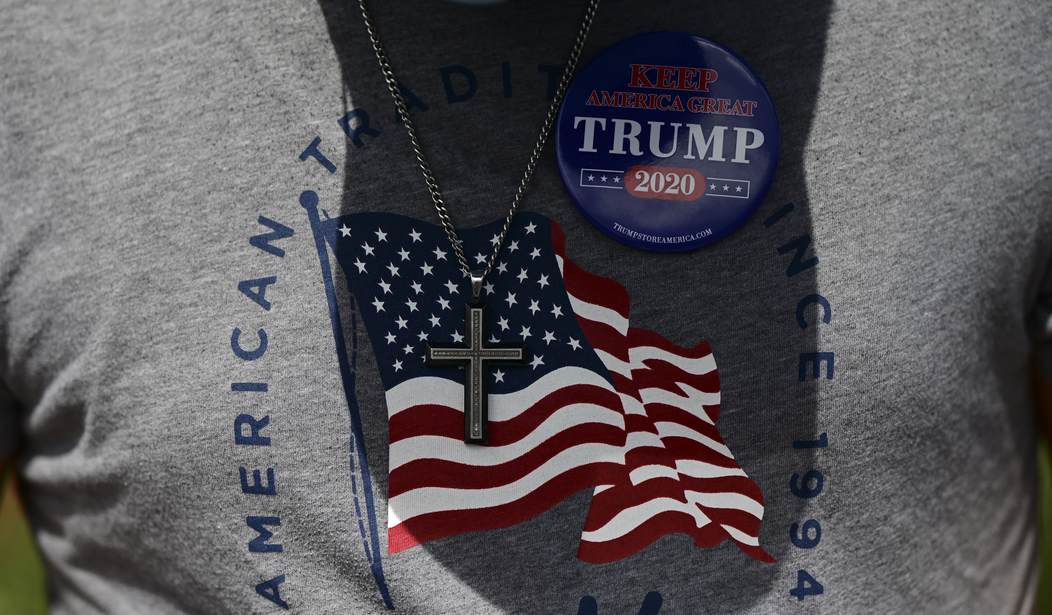Towards the end of the Obama presidency, he left one underreported legacy: state Democratic Parties were decimated. They were an endangered species in Appalachia. In 2016, out of the 490 counties that make up the region, Hillary Clinton only won 21 of them. These apparatuses provide parties with the candidate pools for local and statewide office. The rockstars can punch onto the federal scene if they’re competent. The lack of success from state parties that atrophied can produce embarrassing results. The New Jersey, Pennsylvania, Colorado, and, up until recently, Virginia state GOP operations were classic examples of dysfunction that cost us in elections. Glenn Youngkin has led a resurrection in Virginia, but Colorado and the Keystone State especially have produced some outright abysmal candidates.
Republicans had a good time noting how Obama ruined his party at the state and local levels. Hillary Clinton had to stump about rebuilding these political infrastructures if she won the 2016 race. Now, the GOP is in a dire situation, but some GOP operatives are blaming Trump. Others claim that state parties are no longer necessary, supplanted by the burgeoning super PAC networks (via Politico):
Michigan’s Republican party is broke. Minnesota’s was, until recently, down to $53.81 in the bank. And in Colorado, the GOP is facing eviction from its office this month because it can’t make rent.
Around the nation, state Republican party apparatuses — once bastions of competency that helped produce statehouse takeovers — have become shells of their former machines amid infighting and a lack of organization.
[…]
“It shouldn’t surprise anybody that real people with real money — the big donors who have historically funded the party apparatus — don’t want to invest in these clowns who have taken over and subsumed the Republican Party,” said Jeff Timmer, the former executive director of the once-vaunted Michigan GOP and a senior adviser to the anti-Trump Lincoln Project.
Among some state GOP officials, the mood is grim. One Michigan Republican operative, who was granted anonymity because he wasn’t authorized by the state party to comment, said of that state party: “They’re just in as bad a place as a political party can be. They’re broke…Their chair can’t even admit she lost a race. It’s defunct.”
The demise of the GOP state parties could have a profound impact on the 2024 election. Operatives fear that hollowed out outfits in key battlegrounds could leave the party vulnerable, especially as Democrats are focusing more on state legislative races. Traditionally, state parties perform the basic blocking and tackling of politics, from get out the vote programs to building data in municipal elections.
But not all Republicans are concerned. In fact, some argue that modern politics in the age of super PAC make state parties relics of the past.
[…]
Still, even that operative noted that weak state parties could have damaging effects in lower-profile state races. And others see potentially sweeping consequences up and down the ballot next year.
[…]
In Pennsylvania, the state party sold its headquarters last year, sparking concern among some Republicans in the state about its finances. The Democratic state party’s main PAC also outraised its equivalent nearly two-to-one in 2022. One plugged-in Pennsylvania Republican said that the hard-right activists who have won state committee seats in recent years aren’t able to tap wealthy friends for cash in the same way the party’s more establishment-minded foot soldiers in the past could.
“The state committee members are more and more pro-Trump,” the person said. “But they don’t have the money.”
[…]
In deep-blue Massachusetts, where moderate Republican governors have reigned for the better part of the last 30 years, a hard-right push by a pro-Trump state committee chair destroyed the state GOP’s ability to recruit mainstream candidates and sent donors fleeing, bankrupting the party and costing Republicans their last two statewide offices. The party has now racked up more than $400,000 in debts to vendors and has less than $70,000 between its state and federal campaign accounts to pay it with.
[…]
One way national parties have dealt with the weakening of state parties has been to skip around them. The Republican Governors Association, for example, ran its spending in the 2022 gubernatorial race in Arizona through a county party instead of the long-plagued state Republican Party. In Nevada, meanwhile, the remnants of the famous “Reid Machine” set up a parallel operation to the state Democratic Party, which had been briefly taken over by Bernie Sanders supporters, to help manage the midterms for Senate and gubernatorial contests there. Sen. Catherine Cortez Masto won reelection, while then-Gov. Steve Sisolak narrowly lost his bid for another term.
But working around a state party has its limitations, especially if other political entities are trying to do the same.
Recommended
The deterioration of state Republican Parties will be something more establishment-minded GOP operatives will harp on as a sign that Trump is a cancer to the party. No doubt, some Trump candidates have been terrible, but let’s drop the fiction that the GOP establishment has a monopoly on picking quality candidates. Case in point: in 2012, Ted Cruz was infinitely better than David Dewhurst. The base has become more working-class and populist. It’s a transition period, though this project shouldn’t be put into cruise control. Never say never in American politics, but this is another item of the glitch list that’s best fixed by winning a few elections. Some state operations might be beyond repair, but I thought the Virginia GOP was DOA. Youngkin’s win was a welcome surprise. I worry that this collapse is occurring when the GOP has one of the best Senate maps heading into 2024, and we might be a bit thin on the roster.
























Join the conversation as a VIP Member